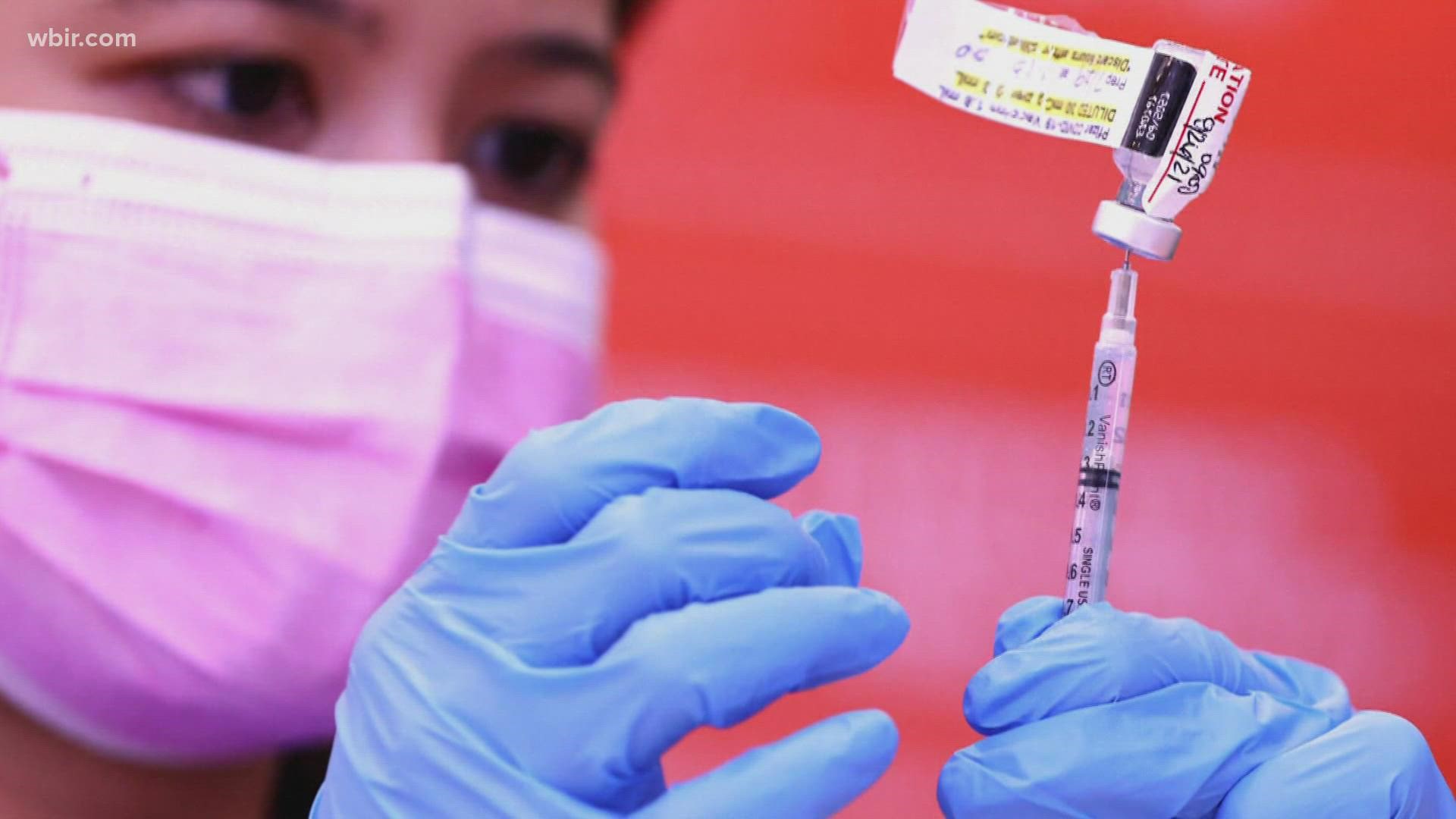KNOXVILLE, Tenn. — National health leaders are recommending some Americans who received either the Pfizer or Moderna vaccines get a third dose of the vaccine, and President Joe Biden said that the third dose will be available to most people soon.
Right now, those vaccine boosters are only available to around 3% of the population. That's for people who are immune-compromised, but the boosters appear to close for everyone else too.
Here's a look at who qualifies and the proposed timeline.
If the FDA authorizes the boosters for everyone, doses could begin the week of Sept. 20. People would then be able to get the shot 8 months after their second dose.
"Unless they're immunocompromised, or suppressed, so there is no need to get a booster until your antibodies start to decline," said Dr. Bill Smith with American Medical Response Knoxville.
There is a catch though — this is only recommended for the two-dose Moderna and Pfizer vaccines.
"The side effect profiles are still very similar we just don't have as much information around mixing vaccines as we do around boosters with the same vaccine," said Dr. Smith.
So, what about people who got the Johnson & Johnson vaccine?
Dr. Smith said fewer people have gotten those shots, so there's less information for health leaders.
"If you can't get another dose of the Johnson & Johnson, then go ahead and get the Pfizer or Moderna but your first choice is to get an additional dose of whatever vaccine you had previously,” he said.
It's Dr. Smith’s understanding that you don't have to bring any documentation to receive the booster shot, but it’s recommended if you feel you may need to provide proof of getting the dose in the future.
"It would be helpful for you to bring that card so it can be added if people are asking in the future if you've had a booster," he said.
The booster rollout is expected to mirror the way vaccines were first administered with healthcare workers, nursing home residents and people over 65 years old being put first in line to get them.

